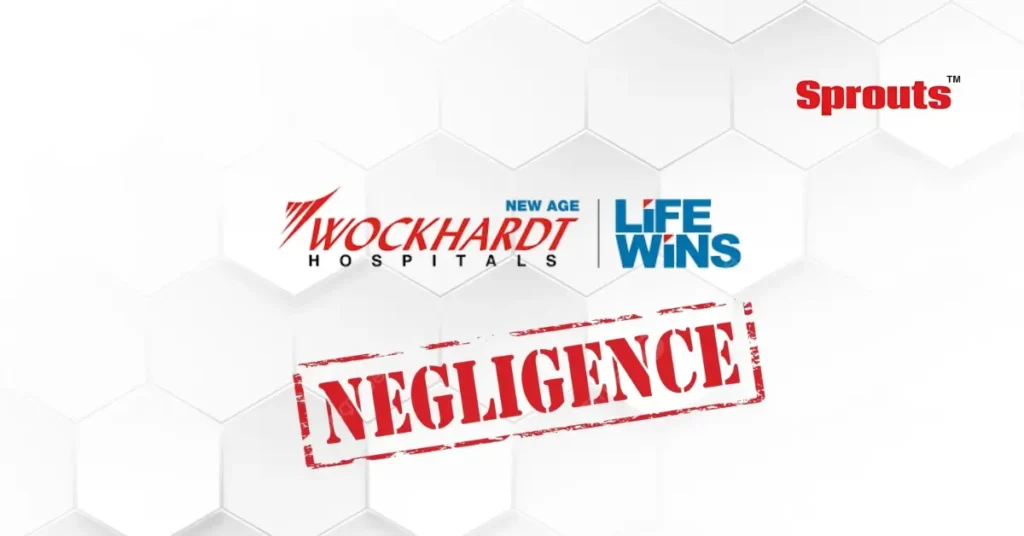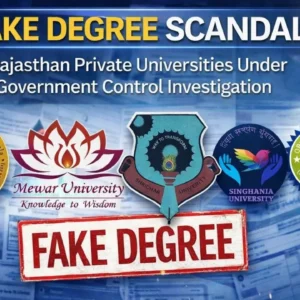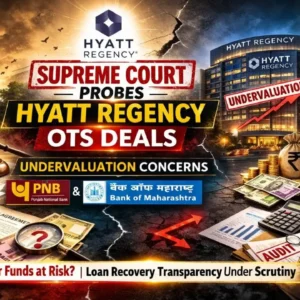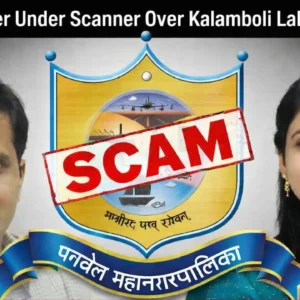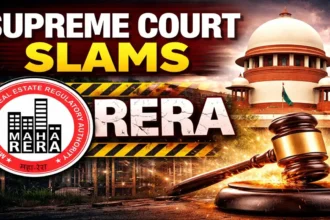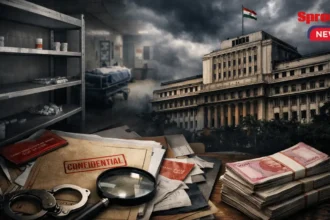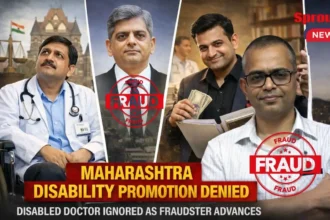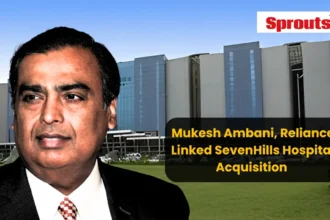Wockhardt Hospitals Slammed for ICU Negligence
• ICU Delay Costs ₹34 Lakh
• Life Lost, ₹34 Lakh Awarded
• Right to Emergency Upheld
Unmesh Gujarathi
Sprouts News Exclusive
Contact: +91 9322755098
Sprouts News Exclusive
Contact: +91 9322755098
In a landmark ruling, Wockhardt Hospitals, Nashik, was ordered to pay ₹34 lakh for failing to admit a patient to the ICU in time, leading to his death. The Sprouts News Investigation Team (SIT) highlights how the commission upheld emergency medical care as a constitutional right under the doctrine of implied consent.
Consumer Commission Holds Hospital Liable for Denial of Emergency Care
Sprouts News Investigation Team (SIT) has uncovered a critical development in the realm of patient rights and medical accountability. In a landmark ruling that reinforces the constitutional right to emergency medical treatment, the Maharashtra State Consumer Disputes Redressal Commission has directed Wockhardt Hospitals, Nashik, to pay ₹34 lakh to the father of a 35-year-old patient who died due to delayed admission to the Intensive Care Unit (ICU).
The case dates back to April 2010, when Ravindra Naidu, a patient with a known history of hypertension and lifestyle-related health risks, was admitted following a severe nosebleed. Despite a subsequent fall in the hospital bathroom and complaints of chest pain and uneasiness, the patient was not promptly moved to the ICU. He died within 24 hours of admission.
Click Here To Download the News Attachment
Contents
- Wockhardt Hospitals Slammed for ICU Negligence
- • ICU Delay Costs ₹34 Lakh
- • Life Lost, ₹34 Lakh Awarded
- • Right to Emergency Upheld
- Consumer Commission Holds Hospital Liable for Denial of Emergency Care
- Click Here To Download the News Attachment
- ICU Negligence and Patient Rights: Doctrine of Implied Consent
- Sprouts SIT Highlights Timeline of Medical Negligence and Legal Reversal
- Hospital Defense Focused on Pre-Existing Conditions, But Court Disagreed
- Legal Implications and Need for Emergency Care Compliance
- Major Controversies Surrounding Wockhardt Hospitals
- 1. Medical Negligence Allegations (Multiple Cases)
- Case 1: Alleged Brain Death Misdiagnosis – Mumbai (2019)
- Case 2: Post-Surgery Complications – Nagpur (2021)
- 2. Overbilling and Fraudulent Charges
- 3. Physical Assault by Security Staff – Nashik (2022)
- 4. Insurance Fraud and Cashless Claim Rejection
- 5. Internal HR Disputes and Staff Protests
- 6. Wrong Patient Death Notification – Rajkot (2017)
- Also Read: Supertech & Vatika, Jayprakash fraud nets 22 FIRs after Supreme Court Orders Probe.
- 7. Denial of Emergency Care and ICU Beds
ICU Negligence and Patient Rights: Doctrine of Implied Consent
The consumer commission, while holding the Wockhardt Hospitals negligent, emphasized a critical legal principle: the “right to emergency medical care” is a fundamental right under Article 21 of the Indian Constitution. The panel further clarified that in life-threatening situations, implied consent applies, and hospitals are legally empowered—and obligated—to provide emergency ICU care even without written consent from relatives.
Wockhardt Hospital had argued that Ravindra’s father, Vijay Dashrath Naidu, declined ICU admission, and that this was recorded in the ICU register. However, the commission noted the hospital failed to submit valid documentary evidence of such refusal. “A relative’s consent is not always required when the patient is critical,” observed the bench.
Sprouts SIT Highlights Timeline of Medical Negligence and Legal Reversal
According to records examined by the Sprouts News Investigation Team (SIT), Ravindra was admitted around midnight on April 15, 2010. By 3 a.m., after suffering a bathroom fall and showing symptoms of distress, his condition worsened. Yet, he was shifted to the ICU only around 7 a.m., hours after the emergency.
The patient’s father alleged that from 7 a.m. to 11 a.m., the hospital kept the family uninformed and barred them from seeing him. He believes his son died around 8:30 a.m., but the hospital continued life support until 12:30 p.m., allegedly to manufacture documentation and protect itself against liability.
Initially, the Nashik District Consumer Forum dismissed the father’s complaint. However, the state commission overturned the order, recognizing a breach in the duty of care despite acknowledging that the attending doctors acted “with their qualification and skill.”
Hospital Defense Focused on Pre-Existing Conditions, But Court Disagreed
The hospital claimed that all medical protocols were followed and the patient’s death was due to accelerated hypertension, stemming from his own decision to discontinue prescribed medication. He was reportedly a chronic smoker and occasional alcohol user.
Wockhardt’s legal team insisted that ICU admission was suggested upon arrival and refused by the patient’s relatives. They cited the ICU register and expert opinions linking the death to existing cardiovascular complications. However, the commission found this line of defense insufficient in the absence of documented consent refusal and timely emergency intervention.
Legal Implications and Need for Emergency Care Compliance
This judgment, as highlighted by the Sprouts News Investigation Team (SIT), serves as a stern reminder to private hospitals and healthcare professionals about their duty to act swiftly during emergencies. It underscores the importance of training staff on legal doctrines such as “implied consent” and the ethical necessity of prioritizing life-saving treatment over procedural formalities.
The ₹34 lakh compensation awarded to the patient’s father is not just financial redress—it sends a strong message about hospital accountability and the legal weight of medical negligence, especially in critical care scenarios.
Key Takeaways:
•Wockhardt Hospitals, Nashik, ordered to pay ₹34 lakh for failure to admit patient to ICU on time.
•Commission reaffirmed that emergency care is a fundamental right, not subject to procedural consent.
•Hospital’s defense of “refused ICU admission” lacked credible evidence.
•Doctors were not personally faulted, but the institutional lapse led to the verdict.
Major Controversies Surrounding Wockhardt Hospitals
1. Medical Negligence Allegations (Multiple Cases)
Case 1: Alleged Brain Death Misdiagnosis – Mumbai (2019)
A 48-year-old woman admitted for a routine surgery was allegedly declared brain-dead prematurely at Wockhardt Hospital, Mumbai Central. The family claimed doctors pressured them for organ donation consent without fully explaining her condition. The hospital denied wrongdoing, but the case triggered debate on transparency and ethics in organ transplant procedures.
Case 2: Post-Surgery Complications – Nagpur (2021)
A senior citizen reportedly developed multiple organ failure after undergoing a knee replacement surgery. The family alleged there was a lack of proper pre-operative assessment, leading to complications and death. The hospital maintained that the patient had signed informed consent forms, while local authorities initiated a review.
2. Overbilling and Fraudulent Charges
COVID-19 Overcharging – Maharashtra (2020–2021)
During the pandemic, Wockhardt Hospitals in Mumbai and Nagpur were designated COVID treatment centers. Multiple patients alleged that they were charged ₹4–6 lakh for 7 to 10-day stays, which far exceeded the government-mandated price caps. In response to complaints, Maharashtra FDA and local municipal authorities issued show-cause notices to the hospital. The issue sparked criticism that private hospitals were profiting from a public health emergency.
3. Physical Assault by Security Staff – Nashik (2022)
A video went viral in 2022 showing a security guard at Wockhardt Hospital in Nashik physically assaulting a family member of a patient who was trying to enter the ICU. The family alleged that the hospital staff were uncooperative and caused unnecessary panic. The hospital claimed the action was taken to control overcrowding. An FIR was filed and the incident attracted public condemnation.
4. Insurance Fraud and Cashless Claim Rejection
Wockhardt Hospitals have received multiple complaints on consumer forums about:
•Rejection of legitimate cashless insurance claims
•Forcing patients to pay upfront despite having valid health insurance
•Delays in cooperating with third-party administrators (TPAs)
Though no formal penalties were announced, insurance regulators reportedly warned hospitals unofficially about such practices.
5. Internal HR Disputes and Staff Protests
There have been multiple allegations by nursing staff and technicians regarding poor working conditions, especially during and after the COVID-19 pandemic. Complaints included:
•Unpaid or delayed salaries
•Excessive working hours without compensation
•Unfair terminations
In 2023, nursing staff at the Nashik branch held a strike demanding fair pay and better facilities. Services were briefly suspended until negotiations resumed.
6. Wrong Patient Death Notification – Rajkot (2017)
At Wockhardt Hospitals in Rajkot, two patients with similar names were admitted simultaneously. Due to misidentification, the hospital mistakenly informed one family that their relative had died and handed over the wrong body. The error led to public outrage over the hospital’s failure to follow basic patient identification protocols. The hospital later issued an apology.
Also Read: Supertech & Vatika, Jayprakash fraud nets 22 FIRs after Supreme Court Orders Probe.
7. Denial of Emergency Care and ICU Beds
During the COVID-19 pandemic, multiple reports emerged that Wockhardt Hospitals denied ICU admission to patients who were not covered by high-value insurance or did not pay deposits upfront. RTI responses from the Mumbai municipal corporation in 2021 revealed that the hospital had turned away dozens of patients despite having available beds. This led to questions about discrimination in emergency care.
Wockhardt Hospitals, though positioned as a chain of premium super-specialty facilities, has faced recurring issues including:
•Medical ethics and negligence claims
•Billing irregularities and insurance fraud
•Administrative lapses
•Staff mismanagement
•Discriminatory patient treatment
These controversies have raised serious concerns about accountability, transparency, and regulatory oversight in India’s private hospital sector.


